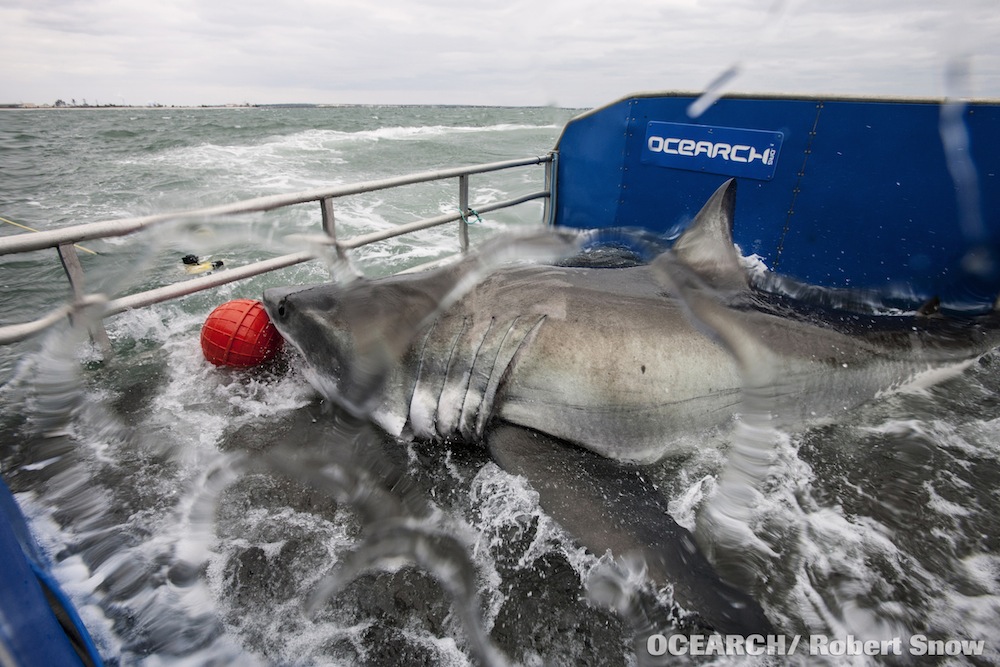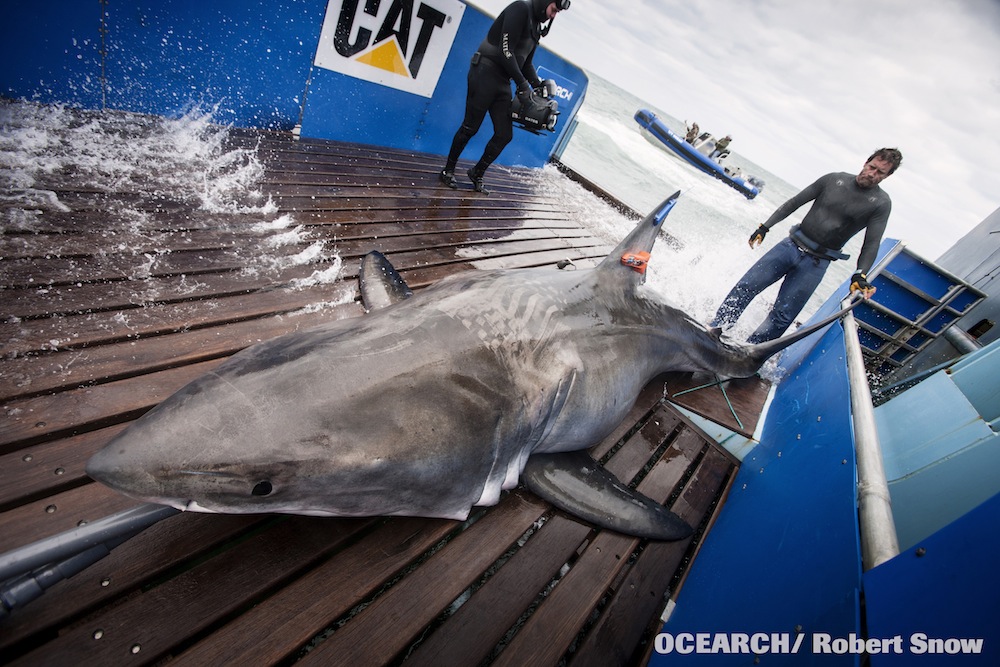
2,000-Pound Great White Shark Tagged & Tracked

A 2,000-pound (907 kilogram) great white shark nicknamed "Lydia" is doing deep dives after being hauled aboard a research vessel and tagged by scientists hoping to learn more about the behavior of these massive toothy fish in the wild.
Lydia is the first great white tagged and released in Florida waters, according to OCEARCH, a nonprofit that worked with Mote Marine Laboratory scientists and other researchers to corral and trap the 14-foot (4.3 meter) beast on March 3.
The tagging is part of a project aimed at better understanding the life cycles of great whites, including reproductive behavior. Little is known about how the fish mate, breed and mature, making conservation decisions difficult. Meanwhile, shark populations are declining worldwide. About 100 million sharks are killed per year due to both legal and illegal fishing, according to a recent study.
OCEARCH scientists tag sharks aboard the M/V OCEARCH, a research vessel equipped with a hydraulic lift capable of bringing sharks out of the water. Lydia and other sharks tagged in the project are kept oxygenated with a hose running seawater through their mouths and gills as scientists take blood and other samples and fit tracking devices to their fins.
The researchers fitted Lydia with a satellite tag to track her movements. They also attached to her fin an accelerometer, which enables them to track every movement and tilt of a shark's body. (Smartphones use similar accelerometer technology to tell if users are holding the screens horizontal or vertical.)

The accelerometer has already popped off the shark, allowing scientists to retrieve it and analyze the data. That analysis is just beginning, but according to OCEARCH, Lydia spent about three hours recovering after the tagging experience and then began a series of repetitive dives from the ocean surface to the bottom, which appears to be typical great white behavior.
The research team will also analyze blood and tissue samples from the shark to assess the impact of environmental pollution. Armchair scientists can track the movements of Lydia and other sharks using the Global Shark Tracker.
Sign up for the Live Science daily newsletter now
Get the world’s most fascinating discoveries delivered straight to your inbox.
Follow Stephanie Pappas @sipappas. Follow LiveScience on Twitter @livescience, Facebook or Google+. Original article on LiveScience.

Stephanie Pappas is a contributing writer for Live Science, covering topics ranging from geoscience to archaeology to the human brain and behavior. She was previously a senior writer for Live Science but is now a freelancer based in Denver, Colorado, and regularly contributes to Scientific American and The Monitor, the monthly magazine of the American Psychological Association. Stephanie received a bachelor's degree in psychology from the University of South Carolina and a graduate certificate in science communication from the University of California, Santa Cruz.









